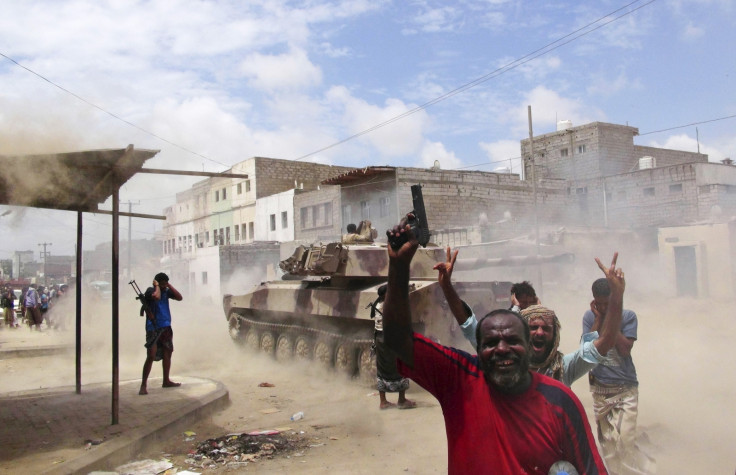Yemen: Saudi Arabia retaliates against Houthi rebels after cross-border attacks

Saudi Arabia has stepped up airstrikes against the Shi'ite Houthi group's positions in Yemen in response to cross-border attacks targeting Saudi cities.
Aerial bombings from the Saudi-led international coalition targeted the northern province of Saada, which is the stronghold of the Iranian-backed group, destroying a land-mine factory, a telecommunications complex and command centres.
Houthi rebels, who seized the Yemeni capital Sana'a and are allied with forces loyal to ousted president Ali Abdullah Saleh, had bombarded with rockets and mortars Jazan and Najaran cities in southern Saudi Arabia, killing seven people.
Brigadier general Ahmed Asiri, who is the spokesman for the Saudi-led international coalition attacking the rebels in Yemen, promised a "harsh response" and said the Houthis "made a mistake by targeting Saudi cities".
"Saudi security is a red line that must not be crossed, and the Houthis will regret their actions," he said. "The government will take the necessary actions to stop the rebels offensive."
The Saudi-led operation, called Decisive Storm, was put to an end last month, but Asiri did not rule out future raids against the rebel group. He added that the coalition would continue to impose a naval blockade on Yemen.
The fresh attack came as Riyadh has put forward a five-day humanitarian ceasefire proposal in Yemen dependent on the Houhtis willingness to accept to lay down their arms.
The war-ravaged country is on the brink of a catastrophic humanitarian crisis amid the sustained air strikes and heightened street fighting.
Five weeks of aerial raids and blockade by a Saudi-led international coalition have seriously strained the local Yemeni population, which is suffering from shortages of food, water and electricity. But for tens of thousands of migrants from Eritrea, Ethiopia and Somalia the situation is even worse, with witnesses complaining that they are being left behind by aid organisations overwhelmed by the effort to help the population during the strikes.
Aid organisations that are still on the ground, such as the International Committee of the Red Cross (ICRC) and Medecins Sans Frontieres, launched an urgent call to the international coalition battling Houthi Shi'ite rebels in the country for a humanitarian pause and unobstructed access after key airports in the capital and the Red Sea port city of Hudaydah have been bombed and are now dysfunctional.
They warned that the air strikes blocked delivery of humanitarian assistance and the movement of humanitarian personnel.
Fuel, which is needed to pump out water, run generators, transportations and telecommunications, has been blocked since the beginning of the Saudi strikes.
Shortage of food means that prices are rocketing and the poor cannot afford to eat. Street battles between popular committees and the Houthi rebels, who took control of Sana'a last autumn causing President Abd Rabbu Mansour Hadi to flee to Saudi Arabia, have erupted in the past weeks, causing people to hole up in their homes for fear of being caught in the crossfire. Others are terrified to even move from their areas due to the presence of snipers.
© Copyright IBTimes 2025. All rights reserved.






















